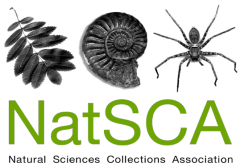Curator, Petrology
The Natural History Museum is one of the world’s leading museums, internationally recognised for its dual role as a centre of excellence in scientific research and as a leader in the presentation of natural history through exhibitions, public programmes, publications and the web.
The petrology collections curator is responsible for undertaking everyday curation, documentation, movements and preservation of the NHM collection including rock, Ocean Bottom Deposit and Building Stone collections.
Curation support will include hosting visitors, processing loans, answering enquiries and registration of the backlog of new acquisitions. The post will feed into and contribute to long term collections management, research and collections development goals.
The successful candidate will have a BSc in a geological subject or museum studies (or equivalent experience) and demonstrable knowledge of rock classification coupled with the ability to identify rock specimens (hand samples and under the microscope) without supervision.
You will have experience in the registration of collections materials in a museum collections management system, preferably KE Emu. You will also have experience of carrying out or supporting small collections- based research projects and handling requests for destructive or invasive sampling.
Role competences:
BEFORE beginning your application - Please read the section below about the ‘Online Application Process’ carefully.
If you wish to be considered for this role you will need to address each of the following competences in the ‘other information’ section of your online application:
1. BSc in a geological subject or museum studies
2. Experience of dealing with complex requests and enquiries from the public, scientific researchers and exhibition designers.
3. Experience of handling requests for destructive or invasive sampling.
4. Ability to deal with difficult and demanding visitors in a firm and polite manner.
5. Experience of registration of collections materials in a museum collections management system, preferably KE Emu.
6. Knowledge of relevant national and international data standards.
7. Experience of carrying out or supporting small collections- based research projects.
8. Experience of carrying out independent or participating in group fieldwork..
9. Demonstrable knowledge of rock classification and ability to identify rock specimens (hand samples and under the microscope) without supervision.
10. Experience of giving talks, tours or demonstrations about collections to a wide variety of audiences.
11. Ability to recognise hazards and follow procedures to ensure risks are minimised in the workplace.
12. The ability to solve problems in a flexible and creative manner.
